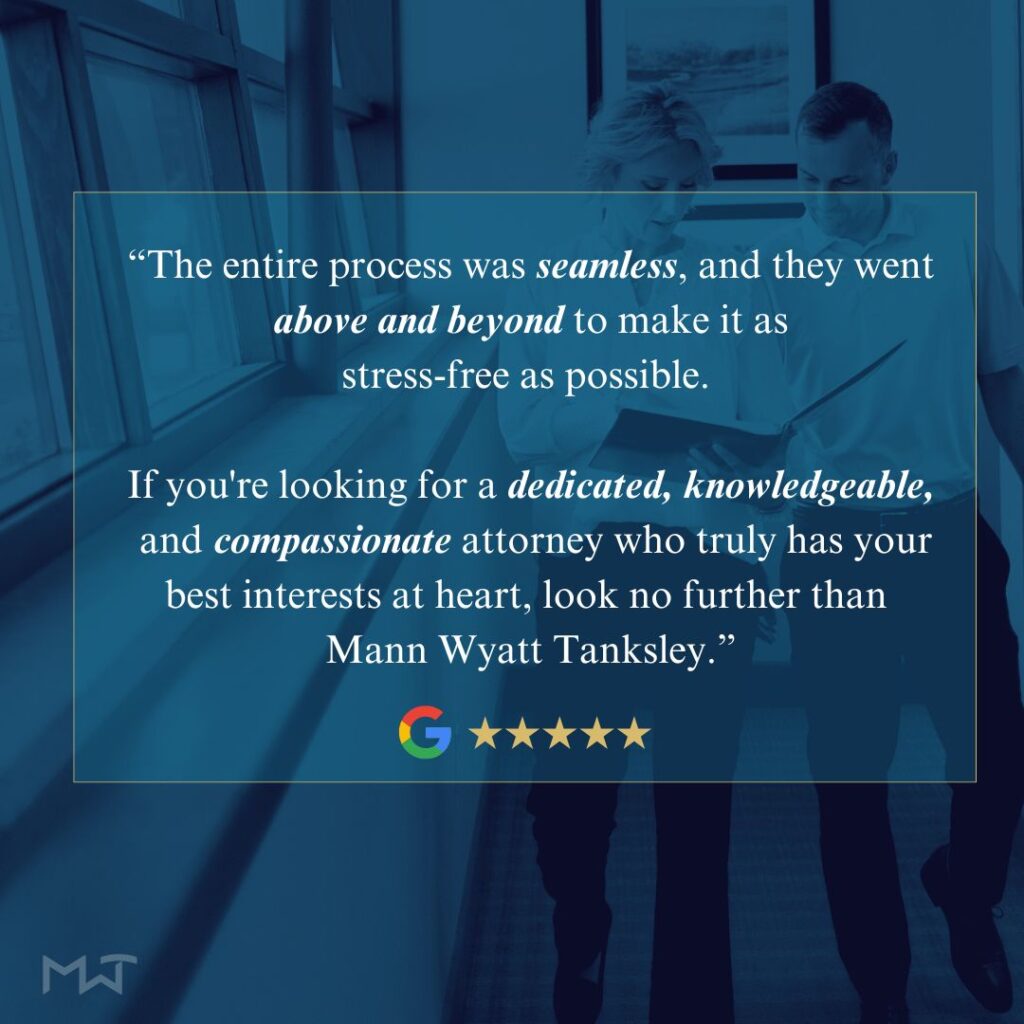Losing a loved one is never easy. When that loss happens because of someone else's negligence, the pain compounds with anger, confusion, and often, financial hardship. You're grieving while facing medical bills, funeral costs, and questions about what happens next. The law recognizes this tragedy and provides a path forward: a wrongful death lawsuit. Understanding that path is the first step toward getting the help your family deserves.

A wrongful death claim arises when a person's death is caused by another party's negligence or wrongdoing. In both Missouri and Kansas, the deceased person would have had grounds to file a personal injury lawsuit had they survived. This civil action allows surviving family members to seek financial compensation for the losses they've suffered as a result of the death.
Common circumstances that lead to wrongful death claims include car and truck accidents, medical errors or medication mistakes, workplace injuries, bicycle and pedestrian accidents, construction incidents, and accidents from dangerous property conditions. Each situation is unique, but they share one common element: another party's failure to act safely led directly to your loved one's death.
What Is a Wrongful Death Action?
A wrongful death action exists to hold responsible parties accountable and to provide financial compensation for the family left behind. In Kansas and Missouri, state law allows surviving family members to file a lawsuit when someone dies as a direct result of another person's or entity's negligence, recklessness, or wrongful conduct. This isn't about assigning blame in a criminal sense. It's about establishing civil liability and securing compensation.
The claim recognizes that families lose more than a person. They lose future income, guidance, companionship, and the inheritance a loved one might have left behind. The law also acknowledges the medical expenses incurred before death and the funeral expenses families must bear immediately after loss. A wrongful death action aims to restore, as much as money can, what families have lost.
What You Must Prove in a Wrongful Death Case

Building a successful wrongful death claim requires establishing a clear connection between the responsible party's actions and your loved one's death. Our injury attorneys examine several key areas to build this case and protect your best interests.
The defendant owed a legal duty. Did the responsible party have an obligation to act safely toward your loved one? A driver must follow traffic laws. A healthcare provider must deliver competent medical care. A property owner must maintain safe premises. This duty exists in most interactions between people.
The defendant breached that duty. Did they fail to meet the standard expected of a reasonable person? Reckless driving, medication errors, or neglecting known hazards all constitute breaches. This isn't about minor mistakes; it's about conduct that falls significantly below what a reasonable person would do.
The breach caused the death. There must be a direct connection between the defendant's actions and your loved one's fatal outcome. This requires clear evidence showing that without their conduct, the death would not have occurred.
Your family suffered measurable losses. You must demonstrate real damages, both financial losses like medical bills and funeral expenses, and personal losses like companionship and guidance.
An experienced attorney knows how to gather evidence on each of these points and present it persuasively to insurance companies or a jury.
Accidents That Lead to Wrongful Death Claims
Wrongful death actions arise from many types of vehicle accidents and incidents. Car accidents remain a leading cause, whether caused by reckless driving, distracted driving, or traffic violations. Truck accidents often result in catastrophic injury or death due to the weight and size of commercial vehicles. Bicycle accidents and pedestrian accidents frequently occur in Kansas City area intersections and streets. Construction accidents, workplace injuries, and medication errors in medical care also form the basis of serious claims.
Each accident type has unique evidence requirements and liability considerations. Our legal team has years of experience handling cases involving all these circumstances, and we understand the specific challenges each presents.
Kansas law is specific about who has legal rights to bring a wrongful death action. The lawsuit is filed on behalf of the deceased's estate for the benefit of the "heirs at law" (those who would inherit the deceased's property under intestate succession law if there were no will).
Typically, heirs include a surviving spouse, children, and grandchildren. If the deceased left a surviving spouse but no children, the surviving spouse has standing to pursue the claim. When there are children, they share in the recovery. Parents or grandparents may qualify as heirs under certain circumstances, particularly if there are no surviving spouse or children.
Understanding exactly who qualifies in your specific situation requires looking at the family structure and Kansas's succession rules. Our experienced attorneys can clarify your family's legal position and explain what role each family member might play in the case.
Missouri law allows wrongful death actions to be brought by surviving spouses, children, and grandchildren of the deceased. Parents may also file if the deceased had no other surviving family members in these categories. Siblings can pursue a claim only when the deceased has no surviving spouse, children, grandchildren, or parents.
The order matters. Missouri law establishes a hierarchy: first, immediate family; then, if they don't exist, the next tier of relatives. This structure prevents conflicts over who controls the litigation and recognizes the closest relationships.
Economic and Non-Economic Damages Explained
Compensation in wrongful death lawsuits falls into two main categories: economic damages and non-economic damages.
Economic damages include tangible, calculable losses. Medical bills incurred before death (hospital stays, medications, treatments) are fully recoverable. Funeral expenses and burial costs are covered. Lost wages that the deceased would have earned during their remaining work life are included. Inheritance the deceased would have provided to their heirs is factored in. These financial losses are straightforward to document and calculate.
Non-economic damages address the intangible losses that money can't truly repair but the law recognizes as real. Loss of companionship, counsel, and guidance is central. Emotional distress and grief experienced by family members count. The loss of parental guidance if the deceased was a parent, or the loss of a parent's care and support, factors into recovery. These damages require more subjective valuation but are no less significant.
Kansas and Missouri both place caps on non-economic damages in certain cases. In Kansas, non-economic losses in wrongful death actions are limited to $250,000 under state statute. Missouri imposes a $350,000 cap on awards in medical malpractice wrongful death cases. Understanding these limits helps shape realistic expectations for maximum compensation in your situation.
In cases involving especially egregious conduct (such as a fatal accident caused by drunk driving or gross negligence), punitive damages may be available. These damages are awarded not to compensate the family but to punish the responsible party's behavior and deter similar misconduct in the future.
Real Results, Real Impact
Our legal team has represented families through some of the most difficult times of their lives. While every case is unique and outcomes depend on specific facts and evidence, our track record reflects the dedication we bring to wrongful death lawsuits.
In one case, a family came to us after losing a loved one under devastating circumstances. The insurance company offered nothing initially. We conducted a thorough investigation, gathered evidence, and built a compelling case. The result: a $700,000 settlement that provided meaningful financial compensation as the family began the healing process. Medical bills totaled $2,966.50, but our advocacy secured recovery far beyond those expenses, reflecting the true scope of the family's losses.
In another case, we again started with no offer on the table. Through persistence, careful investigation, and an unwavering commitment to our clients' needs, we secured a $1,000,000 settlement. Medical expenses in that matter were $3,226.20, yet the final recovery acknowledged the gravity of the loss and the strength of our legal position.
These results are drawn from settled matters. Outcomes vary significantly based on case facts, available evidence, insurance company cooperation, medical needs, and other specifics. We never promise a particular result, but we do promise to fight with everything we have for your family's right to recovery.
When to Contact a Kansas City Wrongful Death Lawyer
Time is critical in wrongful death cases. You should consult with an attorney as soon as possible after your loved one's death if you suspect another party's negligence or wrongful conduct played a role.
Protect your legal rights within deadlines. Both Kansas and Missouri have strict statutes of limitations that set firm deadlines for filing. Missing these deadlines means losing your right to pursue compensation forever. An early consultation helps you understand these timelines.
Preserve critical evidence. Evidence disappears quickly. Witness memories fade, physical evidence is removed or destroyed, and records are lost. The sooner an investigation begins, the more likely we can preserve the information needed to build a strong case.
Avoid insurance company pressure. Insurers often contact families shortly after a death, sometimes offering quick settlements or pressuring families to give statements that hurt their claim. Having legal representation from the beginning protects you.
Navigate complex legal requirements. Wrongful death law specifies who has standing to file, what damages can be recovered, and what evidence is needed. An attorney handles these complexities so your family can focus on healing.
Even if you're still in the early stages of grief, a free initial consultation costs nothing and gives you clarity on your options and next steps.
Understanding the Statute of Limitations
Every wrongful death case operates under strict legal deadlines. Each state sets a statute of limitations that determines how long you have to file a lawsuit after your loved one's death.
In Kansas and Missouri, you generally have several years from the date of death to file a wrongful death action. However, these timelines vary based on the specific circumstances of the case and the type of wrongful death claim involved. Some situations may have shorter deadlines. Filing after the statute of limitations expires permanently bars your claim, making it impossible to recover compensation.
This is why acting quickly matters. Even while you're processing grief and making immediate decisions about funeral arrangements, the clock is running on your right to pursue justice. Consulting with experienced attorneys early in the process helps prevent missed deadlines and allows critical evidence to be preserved before it disappears.
During your free initial consultation, our attorneys can explain the specific statute of limitations that applies to your family's situation and what timeline you're working within.
The Legal Process: What to Expect
When you contact our legal representation, the process begins with an honest conversation about what happened. There's no interrogation, no judgment. Only questions designed to understand your loved one's circumstances and the responsible party's conduct. You're not being tested. You're being heard.

Our attorneys will investigate the incident thoroughly. This means gathering police reports, medical care records, witness statements, expert testimony when needed, and evidence of negligence. For a motor vehicle accident involving a car or truck, this might include traffic citations, vehicle inspection reports, and accident reconstruction analysis. For medication errors, it requires expert review of medical records. For construction accidents or workplace injuries, OSHA reports and safety protocols become central.
Once the investigation is complete, our attorneys will typically make a demand on the responsible party's insurance company or file a lawsuit if negotiation doesn't yield fair financial compensation. Many wrongful death actions settle before trial, but some proceed to a jury verdict. Throughout this process, our legal team communicates with you, explains your legal options, and keeps you informed of progress.
The timeline varies. Simple cases with clear liability and available insurance coverage might resolve in months. Complex cases involving multiple defendants, disputed liability, or catastrophic injury can take longer. What matters is that your family's recovery is the priority in everything we do.
Frequently Asked Questions
What's the difference between a wrongful death lawsuit and a criminal case?
A wrongful death action is civil. It seeks financial compensation for your family's losses and holds the responsible party accountable. A criminal case is brought by the state to punish the defendant for a crime. Both can happen simultaneously, but they operate independently. A wrongful death claim doesn't require criminal conviction; it only requires proving the responsible party's liability by a preponderance of the evidence.
Who can file a wrongful death action and who actually receives the financial compensation?
In Kansas and Missouri, heirs at law of the deceased (typically surviving spouse, children, parents, or siblings) have the right to file. An attorney or court-appointed representative may file on their behalf. Financial compensation goes to the heirs according to state succession law and the settlement or judgment terms.
What kind of evidence do our attorneys need to prove a wrongful death claim?
Our experienced attorneys will gather evidence specific to your case: police or accident reports, medical bills and records, witness statements, expert testimony, photographs, video footage, communication records, and documentation of financial losses. You don't need to collect this yourself. Our legal team handles every aspect of evidence gathering and preservation.
What happens if family members disagree about filing a wrongful death action?
Family disputes happen, especially during emotional distress and the difficult time following a loved one's death. State law defines who has standing to file and whether all heirs must consent. If disagreement persists, the court can intervene. Our attorneys help navigate these dynamics and may recommend mediation to resolve conflicts in your best interests.
Contact a Kansas City Wrongful Death Lawyer Today
Wrongful death is a tragedy, but families have legal rights. You have the right to pursue accountability against the responsible party. You have the right to seek financial compensation that helps your family survive during this difficult time after losing a loved one. You have the right to work with experienced attorneys who treat you with respect, answer your questions clearly, and fight on your behalf, not against you.
At Mann Wyatt Tanksley Injury Attorneys, we serve families across the Kansas City area and north Kansas City. We understand the weight of what you're carrying after a fatal accident. We've helped our clients through cases like yours, and we know how to build strong personal injury claims from the ground up. You shouldn't have to wonder what happens next or worry that an insurance company will take advantage of your emotional distress and financial burden.
Contact our legal team immediately for a free consultation. There's no obligation, no pressure, and no cost to discuss your family's situation. We'll answer your questions about legal options, the legal process, and what financial compensation might be possible. Call now to protect your family's legal rights and prevent any critical deadlines from being missed. Let us help you understand your best interests and take the next step toward the recovery and closure your family deserves.